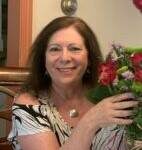
Rabbi Eric Mollo
Parshat B’reishit
The book of Genesis (B’reishit in Hebrew), the first of the “five books of Moses,” offers a carefully crafted account of creation filled with many layers of meaning and interpretation.
In the beginning, the universe was “tohu vavohu,” formless and void. Then, through a structured sequence of events, the formless void becomes “berur v’sidur” (coherent and ordered). Each subsequent day of creation adds new elements, slowly turning the universe into a place teeming with a diverse array of celestial objects, flora and fauna.
As the landscape of our circumstances begins to organize itself, a profound truth about new beginnings is revealed: These fresh starts, more often than not, take root amid confusion and uncertainty. Journeying through a dense, chaotic fog, our challenge is to tread carefully until the path ahead becomes clear, and we regain some semblance of order.
Yet, even with the expectation of a disordered beginning, the narrative of the Creation offers us some comfort and guidance. The transformation from chaos to order doesn’t happen instantaneously. It’s a gradual journey, achieved over several “days” — presumably billions of years on a divine processing scale we can’t begin to fully imagine.
Narrowing the focus to our limited vantage point — the only point we will ever know — the Creation also mirrors our human experience. New beginnings almost always come at the expense of our temporary discomfort; however, with time, through patience and persistence, we can turn the tohu vavohu formlessness of a new situation into berur v’sidur, something useful and beneficial.
Rabbi Yisroel ben Eliezer, also known as The Ba’al Shem Tov (Master of the Good Name), lived and taught in what was once Poland and is now Ukraine. He is considered the founder of Chasidic Judaism and many of his teachings remain with us today. Of creation, he once wrote: “The world is new to us every morning. This is God’s gift and every man should believe he is reborn each day.”
Just as the universe moved from chaos to order, we, too, in our daily lives are born each day, allowing us to examine our challenges with fresh eyes and seek out the opportunities within them. Just as the universe transitioned from void to vibrant, our personal challenges and goals, too, can be navigated. Every morning, we’re reminded of the divine gift of renewal, encouraging us to transition from the bewildering tohu vavohu of our uncertainties to the clarity and purpose of berur v’sidur, thus helping us to frame our understanding of life’s challenges as precursors to growth.
Trial and error are all part of the process. Even after the void became more coherent, there were plenty of challenges to overcome — most especially relationship dynamics, which are arguably the most challenging aspect of our lives today as well. Adam and Eve disobey their Creator and are summarily banished from the Garden of Eden. Cain couldn’t reign in his feelings about Abel and committed the very first act of murder by taking his brother’s life.
And yet, out of all that chaos and loss, there eventually came order and redemption in the form of the generations that followed. After seven generations through the tumultuous line of Cain, Noah was born: the ultimate agent of salvation for humanity and the animal kingdom.
The thread of redemption as the order to chaos is woven throughout Jewish text and tradition. Within the grand tapestry, we have been fortunate to inherit, it is clear that the dance between chaos and order, tohu vavoh and berur v’sidur is part of the fundamental rhythm of our existence. Every transition, every challenge, every misstep and adjustment are part and parcel of our shared human experience.
Just as the dawn heralds a new day, imbuing the world with freshness and possibility, so, too, can we approach our triumphs and tribulations with the wisdom that every end is only a precursor to another beginning; that even in the thick of chaos, the seeds of order and purpose are eagerly awaiting their moment to sprout and flourish.
Rabbi Eric Mollo is the rabbi of Temple B’nai B’rith in Wilkes-Barre. He is the co-chair of RAC-PA, the Pennsylvania branch of the Religious Action Center of Reform Judaism. The Board of Rabbis of Greater Philadelphia is proud to provide diverse perspectives on Torah commentary for the Jewish Exponent. The opinions expressed in this column are the author’s own and do not necessarily reflect the view of the Board of Rabbis.






I have a deep understanding for Rabbi Mollo’s article. I have a been immerged in sadness since learning about the Hamas attack on Israel. Rabbi Mollo’s article persuaded me think about a positive tomorrow. Thank you Rabbi Mollo